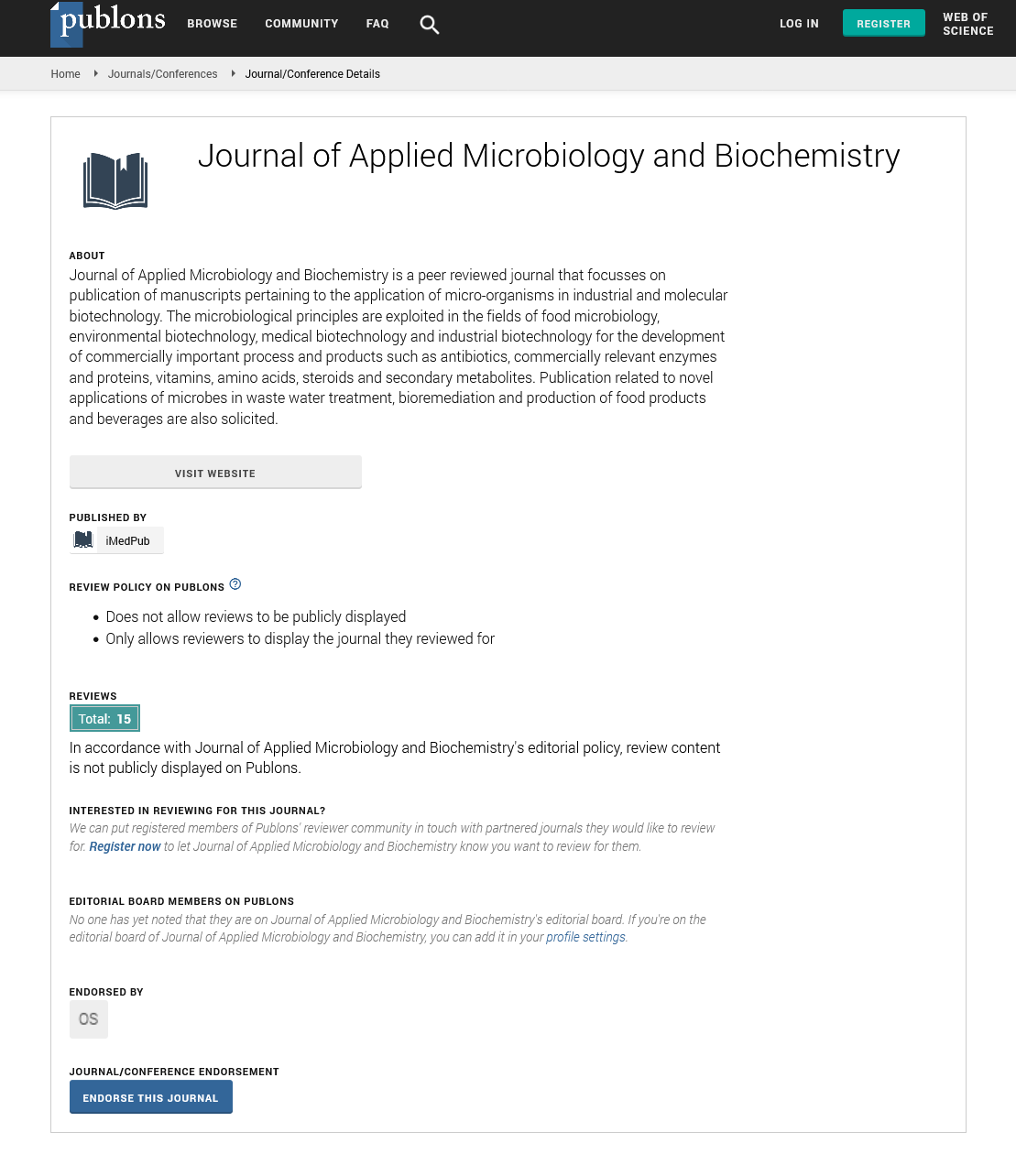ISSN : ISSN: 2576-1412
Journal of Applied Microbiology and Biochemistry
Abstract
Role of Microsymbionts in Plant Microbe Symbiosis
Symbiosis refers to the long-term relationship of two unlike species. Microbes symbiotically associate with plant for several reasons, most importantly, to utilize carbon compounds from the root exudates as nutrients. Most of the microsymbionts acknowledge plant provided nutrients via benefitting plant by converting atmospheric nitrogen to the plant usable form of nitrogen, solubilizing unavailable form of phosphate and zinc into available form, providing phytohormones for better plant health, and protecting plant from the pathogens and abiotic stresses. Considering the beneficial properties of plant associating microsymbionts, it could be used as biofertilizers at commercial scale. Biofertilizer is an ecofriendly solution to minimize the hazards of chemical fertilizers. Microsymbionts exert their positive impact on plant once they appropriately colonize rhizosphere or invade plant root or nodules. This review indicates that how microsymbionts colonize plant and contribute to the plant health and crop production.
Author(s): Mohsin Tariq, Sohail Hameed, Hikmat Ullah Khan, Muhammad Ikram Munir, Faryha Nushin, Saliha Jamil, Samia Nawaz and Marriam Zafar
Abstract | Full-Text | PDF
Share This Article
Google Scholar citation report
Citations : 342
Journal of Applied Microbiology and Biochemistry received 342 citations as per Google Scholar report
Journal of Applied Microbiology and Biochemistry peer review process verified at publons
Abstracted/Indexed in
- Google Scholar
- China National Knowledge Infrastructure (CNKI)
- Cosmos IF
- Directory of Research Journal Indexing (DRJI)
- Publons
- Secret Search Engine Labs
Open Access Journals
- Aquaculture & Veterinary Science
- Chemistry & Chemical Sciences
- Clinical Sciences
- Engineering
- General Science
- Genetics & Molecular Biology
- Health Care & Nursing
- Immunology & Microbiology
- Materials Science
- Mathematics & Physics
- Medical Sciences
- Neurology & Psychiatry
- Oncology & Cancer Science
- Pharmaceutical Sciences
